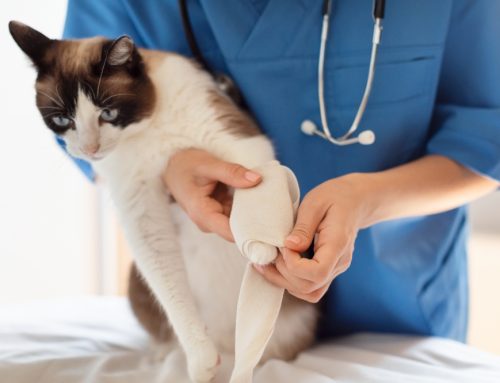With year-round warm to downright hot weather and many coastal areas, Texas is home to a thriving mosquito population. These little buggers are a nuisance to people and are dangerous to pets and wildlife because they can harbor and transmit heartworms. Heartworm disease has been detected in all 50 states, but the incidence is highest in the southern United States. Data from the most recent prevalence studies report that 1 in 50 dogs in our county test positive for heartworm, and 1 in 30 in Texas as a whole.
Heartworm infections are serious, but treating them can be costly and often medically risky, so our Lytle Veterinary Clinic team recommends year-round preventive measures for all pets. Read our overview to learn how heartworm disease can affect your furry pal, and what you can do to prevent them from contracting this condition.
Heartworm transmission in pets
Pets or wildlife infected with heartworms have tiny larvae in their blood. About two weeks after a mosquito bites an infected pet and feeds on their blood, the bug can transmit those larvae to another pet or animal. In this way, infected pets, foxes, or coyotes serve as heartworm reservoirs, perpetuating a specific area’s disease incidence.
After a pet is infected, the heartworm larvae migrate slowly through their tissues until they reach the heart, where the larvae set up shop and mature into adults. The adults then mate and produce more larvae and, eventually, more adults. Because the worms can grow up to a foot long, their presence physically damages an affected pet’s heart, lungs, and major blood vessels.
Heartworm signs in pets
Dogs and cats may become infected with heartworms, but signs vary between species because dogs are natural hosts while cats are not. In dogs, the initial infection is silent. After months to years of heartworms proliferating and damaging the cardiovascular system, an infected dog’s heart may become enlarged or fail. Signs include coughing, difficulty breathing, fluid accumulation in the chest or abdomen, and exercise intolerance. Dogs with end-stage heart failure or those who develop a physical worm blockage may die from heartworm disease.
Infected cats can sometimes fight the infection on their own, but one or two worms may manage to evade the immune system and become adults. Because cats have small hearts, only a few worms can have a major impact. Some cats do not get sick, and the worms live out their natural lives. Other cats can experience sudden heart failure or death, or live with chronic respiratory difficulties induced by a robust immune response to the worms’ presence.
Heartworm diagnosis in pets
A dog’s diagnosis is straightforward but a cat’s diagnosis can be a challenge. Blood tests can detect antigens (i.e., genetic materials) from female adult worms, but not from males or larvae. Other tests look for the immune system’s antibodies against the worms or check the bloodstream for live larvae. To confirm a suspected heartworm diagnosis or determine the extent of a pet’s heart damage, our Lytle Veterinary Clinic team performs an X-ray or ultrasound.
Heartworm treatment in pets
Heartworm treatment relies on extremely toxic drugs to kill the adult worms, because other deworming medications are ineffective. The necessary drug is expensive, is sometimes difficult to obtain, and can only be administered to dogs. No safe treatment exists for cats, but medical management can help to improve their heart or lung function until the worms die on their own. In severe cases, surgery may be necessary to remove worms physically. Dogs’ typical heartworm treatment course includes the following:
- A series of three deep muscle injections over several months.
- Hospitalization and observation on injection days.
- Antibiotics to kill bacteria associated with heartworms.
- Steroids to reduce the likelihood of a reaction to toxins the dying heartworms release.
- Strict exercise restriction throughout treatment.
- Multiple follow-up tests.
- Lifelong heartworm preventive medication.
Heartworm screening and prevention strategies for pets

Preventing heartworm infection is easier, less risky, and more affordable than treating heartworm disease. Our team recommends all pets, including indoor cats, remain on a year-round effective heartworm preventive medication. Preventives come in several varieties, including monthly oral or topical formulations and a long-lasting injection. Because only small doses are necessary to prevent infection, side effects are minimal. Consistent monthly dosing is required. Missing only one or two doses is enough for infection to take hold. We also recommend annual heartworm screening blood tests for dogs.
Heartworm is a devastating disease, but simple preventive measures can help keep your furry pal from contracting the condition. Schedule your pet’s heartworm screening test with our Lytle Veterinary Clinic team and while you’re in our facility, pick up a fresh supply of affordable preventive medication to keep your furry pal safe.







Leave A Comment